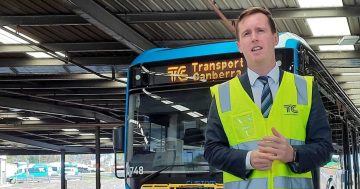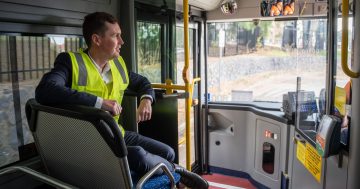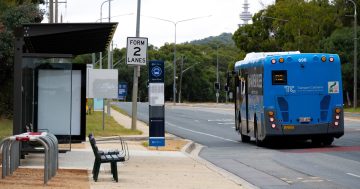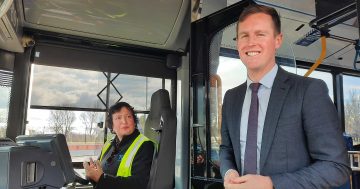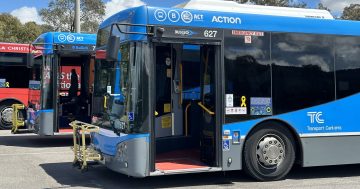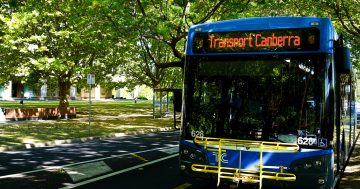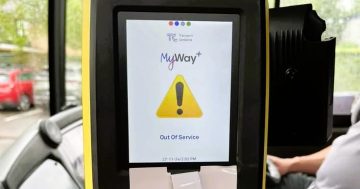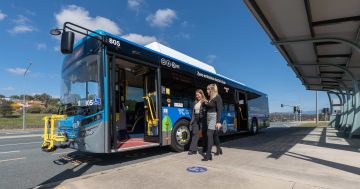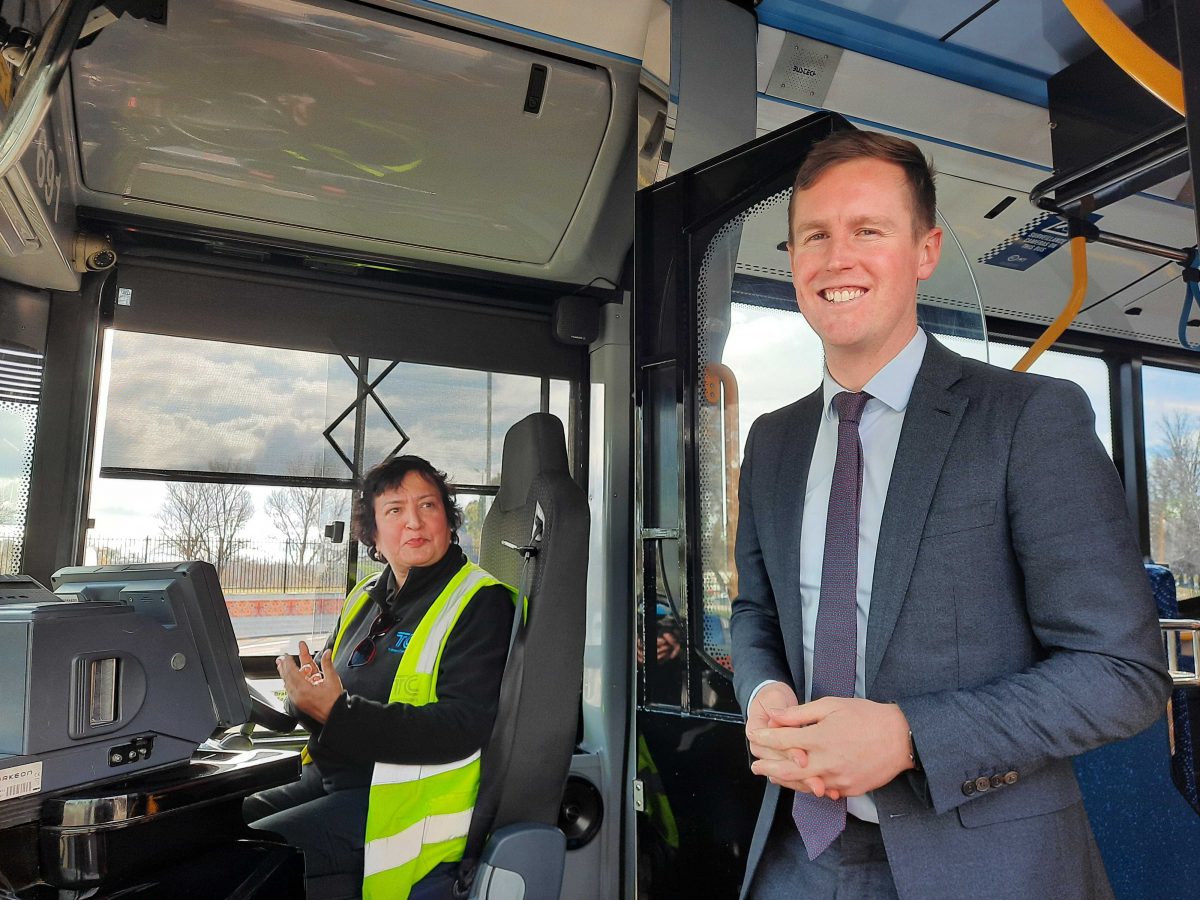
Driver Alka Bhargava and Transport Minister Chris Steel are calling for more women to get behind the wheel. Photos: Ian Bushnell.
The ACT Government has not given up on securing a seven-day bus driver roster to ensure greater reliability of services at weekends, putting the issue on the table in negotiations for a new agreement with the union.
The rostering issue is a longstanding one in Canberra and the Transport Workers’ Union has staunchly resisted any change to the current voluntary system for weekend shifts.
But Transport Canberra Deputy Director-General Ben McHugh confirmed that the rostering change was part of the government’s proposal in the current enterprise bargaining negotiations.
“We’re always investigating new ways of rostering and building our workforce to deliver reliability on weekends and everything, including seven-day rosters, is being considered at the moment,” Mr McHugh said.
He spoke at Transport Canberra’s announcement of its plans to recruit more drivers to cope with the pressures of the latest wave of COVID-19 and increase the frequency of services.
Transport Minister Chris Steel said the new recruitment campaign hoped to attract 60 new drivers by December, adding to the 33 who signed on this year.
Mr McHugh said Transport Canberra needed more than 800 drivers to run the service, and that was about the current number employed, but natural attrition and absences due to COVID-19 meant the interim timetable and its reduced services were still in place to cover the situation.
He could not say when Transport Canberra could reinstate the full timetable due to the ongoing impacts of COVID-19, but Mr Steel said the recruitment drive was part of the plan to get back to normal.
“We’ve decided to prioritise reliability and we will be continuing to do that with the delivery of the interim bus timetable during term three, but we’re going to use this time to recruit more bus drivers so that when this current wave of COVID-19 subsides, we can start to step up the frequency of services,” Mr Steel said.
Mr McHugh said, on average, about 90 drivers were off work at any point in time.
“We can accommodate those types of impacts. If that number increases much beyond that, though, there is a risk to service reliability,” he said.
Mr Steel said Transport Canberra wanted to recruit drivers from multicultural communities and employ more women to have a diverse workforce.
He said women only made up 13.3 per cent of drivers.
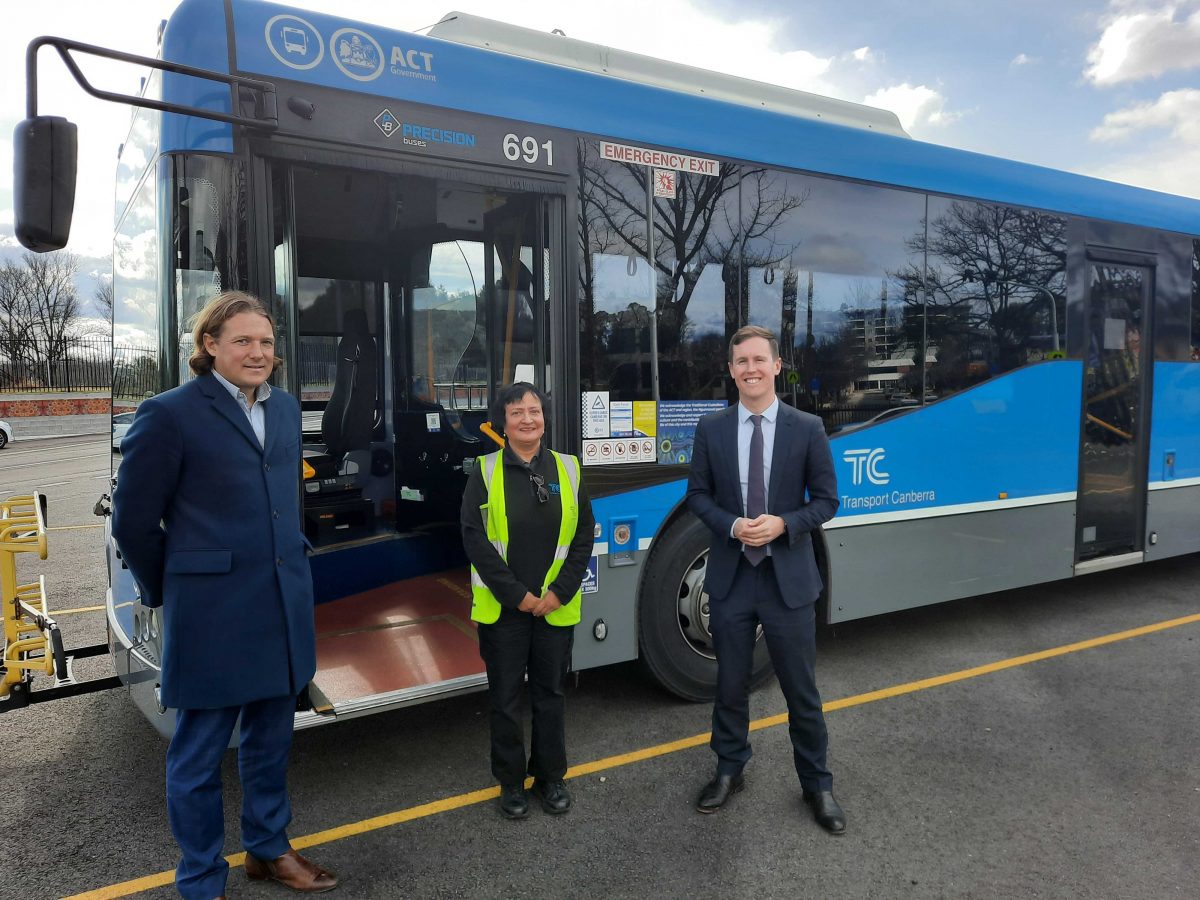
Transport Canberra Deputy Director-General Ben McHugh, driver Alka Bhargava and Transport Minister Chris Steel at the Turner layover.
One of these drivers is Alka Bhargava, who has been behind the wheel for a year after running a restaurant.
“I absolutely love this job,” she said.
“I was looking for a different venture which is more relaxing and something new to learn. Coming to Transport Canberra has changed my life.”
Originally from India, she never thought she would end up behind the wheel of a bus.
“It has given me so much confidence driving a bus and I take pride in that,” Alka said.
She encouraged other women to give it a go and get out of their comfort zone, saying it was a very rewarding job that also allowed her to see more of the city.
Mr McHugh said driver safety and flexibility were essential aspects of working with Transport Canberra.
“We’re also making sure that the driver experience is one that feels safe for them and it’s flexible and allows them to fit in the driving with other things that might be priorities in their life, whether that be raising families or doing other things,” he said.
New drivers would be entering the workforce at an exciting time for the public transport sector, with Canberra’s first 12 all-electric buses on the way this year and an additional 90 electric buses currently being procured.
The latest recruitment campaign for casual and part-time bus drivers will run until 24 July 2022.
Applicants don’t need a heavy vehicle licence, just a normal motor vehicle licence and a good driving record for the last five years.
For more information on driver recruitment, visit Transport ACT.












